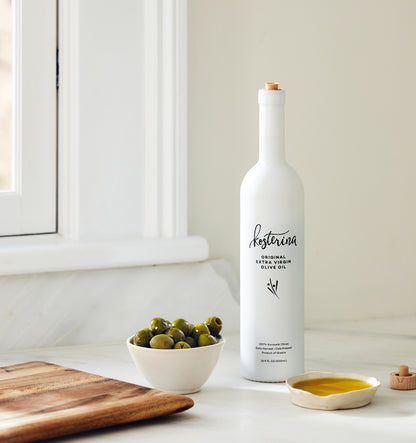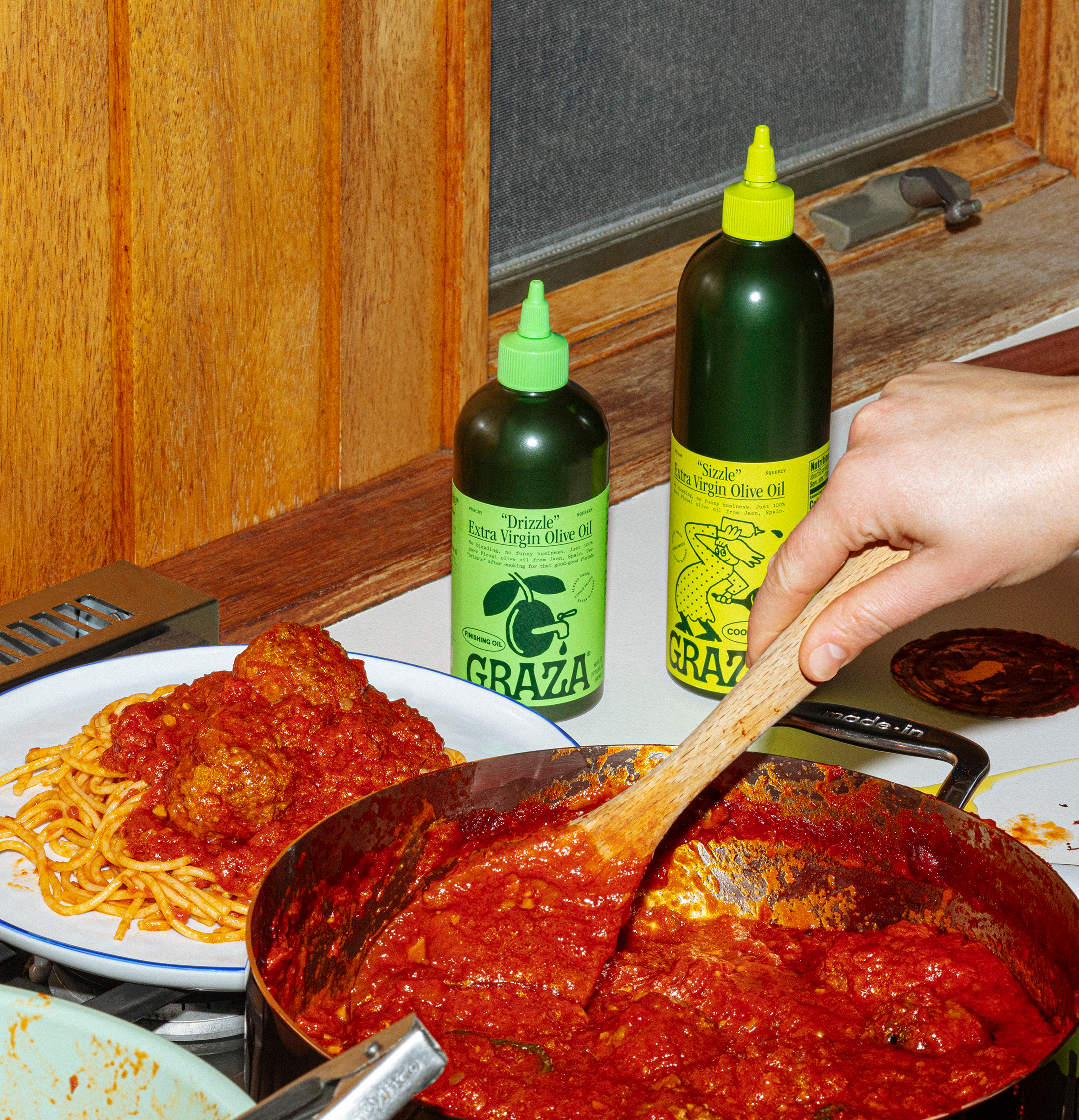Extra Virgin Olive Oil Benefits: The Natural Anti-aging Solution You've Been Searching For
Extra Virgin Olive Oil Benefits: The Natural Anti-aging Solution You've Been Searching For
Blog Article
Exploring the Various Sorts Of Olive Oil and Their Uses, Including Bonus Virgin Olive Oil
The expedition of olive oil includes a varied array of types, each offering cooking applications and unique flavors. Extra virgin olive oil, renowned for its premium quality and health and wellness advantages, serves as a staple in several cooking areas, yet it is only one aspect of this diverse active ingredient.
What Is Olive Oil?
Acquired from the fruit of the olive tree, olive oil is a staple in Mediterranean cuisine and a crucial active ingredient in various culinary applications. This flexible oil is created by pressing whole olives, leading to a fluid that differs in color, aroma, and flavor relying on the kind of olives made use of, the region of cultivation, and the extraction process. Olive oil is mainly composed of monounsaturated fats, especially oleic acid, which is understood for its possible wellness advantages, including anti-inflammatory homes and cardio support.
Along with its culinary uses, olive oil has a long background of application in traditional medicine and skin care, owing to its abundant antioxidant web content (extra virgin olive oil benefits). The oil is frequently made use of in dressings, marinades, and for cooking methods such as sautéing and roasting. Its distinct flavor profile can improve the taste of various dishes, making it a vital component for both home chefs and expert cooks
In addition, olive oil is commemorated for its duty in the Mediterranean diet plan, which is connected with many health and wellness benefits. As awareness of these benefits expands, olive oil remains to gain popularity worldwide as a basic component of a healthy way of life.
Kinds Of Olive Oil
Recognizing the different sorts of olive oil is necessary for both cooking fanatics and health-conscious consumers. Olive oil is identified mainly based upon its extraction approach and high quality, which significantly impacts its health, taste, and fragrance advantages.

Light olive oil, regardless of its name, describes a lighter taste and not reduced calories. It is optimal for those looking for a much more subtle preference in sauces and dressings. Furthermore, there are flavored olive oils infused with natural herbs, flavors, or citrus, which can enhance recipes without the need for additional flavoring.
Each kind of olive oil serves specific cooking functions, and understanding these distinctions allows consumers to make informed selections that line up with their cooking designs and wellness goals.
Additional Virgin Olive Oil
Bonus virgin olive oil (EVOO) is commonly considered the highest top quality olive oil offered, popular for its abundant flavor and many health advantages. To be identified as extra virgin, the oil should be created from fresh olives using mechanical processes, without using solvents or extreme warm. This thorough technique maintains the oil's natural tastes, anti-oxidants, and healthy and balanced fats, leading to an item with a low level of acidity degree of less than 0.8%.
EVOO is bountiful in monounsaturated fats, specifically oleic acid, which is linked to lowered inflammation and enhanced heart wellness. It also consists of polyphenols, effective antioxidants that might provide safety results against chronic illness. The taste profile of EVOO can vary considerably depending published here on the olive range and area of production, ranging from grassy and fruity to durable and peppery.

Culinary Utilizes of Olive Oil

In cooking, olive oil can be used for sautéing, roasting, and grilling, providing a healthier alternative to butter or various other fats. Its high smoke factor makes Visit This Link it suitable for different cooking techniques, while its antioxidants contribute to a heart-healthy diet. Drizzling olive oil over ended up recipes, such as pasta, fish, or barbequed veggies, can raise flavors and add a touch of elegance.
Moreover, olive oil plays a significant duty in cooking, where it can replace conventional fats in dishes for bread and breads, presenting dampness and a subtle taste. It additionally offers as a base for infused oils, allowing cooks to explore flavors such as garlic, herbs, or chili, better increasing its culinary potential. On click to find out more the whole, olive oil's adaptability makes it important in both home and professional cooking areas.
Choosing Quality Olive Oil
When selecting high quality olive oil, it's necessary to think about numerous key factors that affect the item's health, fragrance, and flavor advantages. First and primary, decide for extra virgin olive oil (EVOO), which is acquired from the first cool pressing of olives and includes the highest degree of anti-oxidants and useful substances. Seek oils that are certified by acknowledged companies, as this commonly ensures adherence to rigid top quality standards.
The packaging likewise plays a substantial role in protecting the oil's stability. Pick oils saved in dark glass bottles or tins to secure versus light degradation. Take notice of the harvest day; fresher oils supply superior flavor and nutritional value, so choose items that are within 18 months of their harvest.
In enhancement, consider the origin of the oil. Premium olive oils commonly originate from details areas known for their unique flavor accounts, such as Italian, Spanish, or Greek oils. Lastly, be mindful of the preference; a top quality olive oil need to have an equilibrium of fruity, bitter, and sharp notes, showing its splendor and intricacy. By examining these aspects, you can guarantee you are selecting the most effective olive oil for your culinary needs.
Final Thought
In summary, the expedition of numerous sorts of olive oil reveals distinct features and applications, with additional virgin olive oil representing the peak of quality as a result of its reduced level of acidity and high antioxidant web content. Its adaptability in culinary uses boosts flavors in dressings, marinades, and showers. Comprehending the different varieties of olive oil allows for educated options in food preparation techniques, promoting much healthier methods while improving the general gastronomic experience. Quality selection continues to be vital for optimal advantages.
Derived from the fruit of the olive tree, olive oil is a staple in Mediterranean cuisine and a key component in numerous culinary applications.The most typical kinds of olive oil include improved olive oil, pure olive oil, and light olive oil.Extra virgin olive oil (EVOO) is commonly pertained to as the highest high quality olive oil readily available, well known for its abundant taste and numerous health and wellness advantages. Opt for additional virgin olive oil (EVOO), which is acquired from the first cold pressing of olives and has the highest levels of antioxidants and helpful compounds.In summary, the exploration of different kinds of olive oil discloses distinctive attributes and applications, with added virgin olive oil standing for the peak of quality due to its low acidity and high antioxidant material.
Report this page